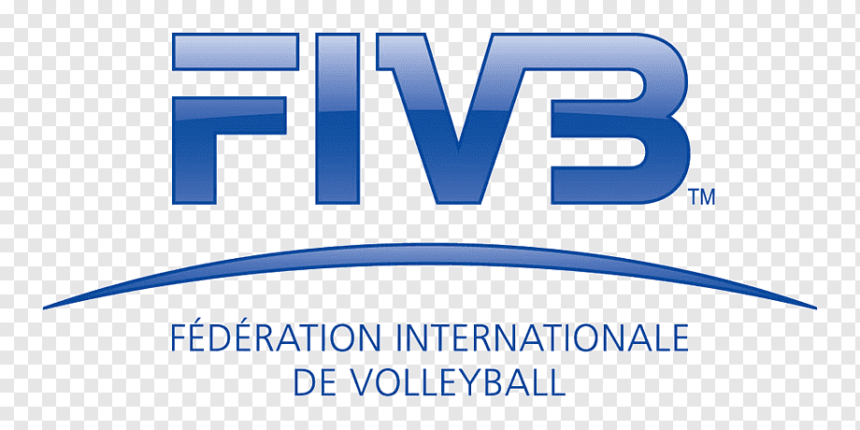Introduction to Volleyball and FIVB
Volleyball, a sport loved by millions around the globe, has come a long way since its humble beginnings. From friendly matches on sandy beaches to fierce battles for Olympic gold, this dynamic game has captured the hearts of athletes and fans alike. And at the forefront of volleyball’s evolution stands the International Volleyball Federation (FIVB), an organization that has shaped and transformed the sport into what it is today.
Join us on a journey through time as we explore how FIVB has played a pivotal role in shaping the global landscape of volleyball. From its inception to groundbreaking innovations and controversial moments, we’ll delve into all aspects of this incredible sport’s growth under FIVB’s leadership. So, grab your knee pads, dust off your spiking skills, and let’s dive right into the exciting world of volleyball!
The Early Years of Volleyball: From YMCA to Olympic Sport
Volleyball, a sport loved and played by millions around the world, has come a long way since its humble beginnings in the late 19th century. It all started at the Young Men’s Christian Association (YMCA) in Holyoke, Massachusetts, where William G. Morgan invented the game as an alternative to basketball.
In 1895, just four years after its creation, volleyball began spreading like wildfire across YMCA centers throughout America. The game quickly gained popularity due to its simplicity and accessibility for people of all ages and athletic abilities.
As volleyball continued to gain traction within local communities, it caught the attention of international sports organizations. In 1947, the International Volleyball Federation (FIVB) was established with the goal of promoting and governing this emerging sport on a global scale.
With FIVB’s leadership came significant developments that propelled volleyball towards becoming an Olympic sport. It wasn’t until 1964 that volleyball made its debut at the Summer Olympics in Tokyo, Japan. This milestone marked a turning point for the sport’s recognition and exposure worldwide.
Under FIVB’s guidance and influence over several decades, numerous changes and innovations have transformed how we perceive and play volleyball today. One major innovation was implementing rally scoring in 1999 which increased excitement levels by awarding points on every rally regardless of who served.
Moreover, beach volleyball emerged as another branch under FIVB’s umbrella during these transformative years. Its inclusion in major international tournaments showcased alternative styles of play while expanding opportunities for athletes globally.
Throughout their existence, FIVB has prioritized fostering growth beyond traditional powerhouses such as Brazil or Russia by introducing development programs aimed at nurturing talent from underrepresented regions like Africa or Asia-Pacific countries.
However progressive these advancements have been for global expansion there were also challenges faced along with controversies surrounding rules interpretation or doping scandals among players. Nonetheless, FIVB has remained steadfast in its commitment to improving the sport.
|
Map of the members of FIVB according to their confederation
|
|
| Abbreviation | FIVB |
|---|---|
| Predecessor | International Amateur Handball Federation |
| Founded | 20 April 1947 |
| Founded at | Paris, France |
| Type | Sports federation |
| Legal status | Governing body of Volleyball |
| Purpose | Sport governance |
| Headquarters | Lausanne, Switzerland |
|
Region served
|
Worldwide |
|
Membership
|
222 national associations |
|
Official languages
|
English, French, Spanish, Arabic, Portuguese, Russian |
|
President
|
Ary Graça |
|
Main organ
|
Congress |
| Subsidiaries |
5
|
| Affiliations | International Olympic Committee |
|
Revenue (2017)
|
US$65.34 million |
| Expenses (2017) | US$60.54 million |
| Website | FIVB.com |
The Creation of FIVB and Its Impact on the Sport
In the early 20th century, volleyball was just a casual game played by friends at YMCA gyms. However, as its popularity grew, there arose a need for an international governing body to oversee the sport’s development and ensure its standardization. And so, in 1947, the International Volleyball Federation (FIVB) came into existence.
Since its creation, FIVB has had a profound impact on the sport of volleyball. Under their leadership, rules have been established to govern gameplay, ensuring fairness and consistency across all levels of competition. This has allowed players from different countries to compete against each other with a mutual understanding of the game.
Additionally, FIVB has played a crucial role in promoting volleyball globally. They have organized numerous international competitions such as World Championships and World Cups that attract teams from around the world. These events not only showcase top-level talent but also foster cultural exchange among nations through sportsmanship.
Moreover, FIVB has continuously worked towards innovating and improving the sport. They were instrumental in introducing technologies like instant replay systems and challenge systems that have enhanced decision-making during matches. These advancements not only make games more accurate but also add excitement for both players and spectators alike.
FIVB’s impact goes beyond just organizing tournaments; they are actively involved in grassroots development programs worldwide. Through initiatives like “Volley All Festival” and “Cool Volley,” they aim to introduce volleyball to new regions while nurturing young talents at an early age.
However, it hasn’t always been smooth sailing for FIVB. Like any organization dealing with rapid growth and globalization challenges arise—such as financial transparency concerns or issues surrounding doping scandals—that require swift action from FIVB’s management team to maintain integrity within the sport.
Looking ahead into the future of both volleyball and FIVB is exciting yet challenging at times due to increasing competition from other sports and the need to adapt to ever-changing societal trends.
Major Changes and Innovations in Volleyball Under FIVB’s Leadership
The leadership of the International Volleyball Federation (FIVB) has been instrumental in driving major changes and innovations within the sport. One notable change is the introduction of rally scoring, which has revolutionized the game by awarding points on every play rather than just when serving. This has made matches more exciting and fast-paced, as teams now have to fight for every point.
Another significant innovation brought about by FIVB is the implementation of video challenge systems. This technology allows teams to challenge referee decisions using video replays, ensuring fair play and reducing human error. It adds an extra layer of excitement and fairness to the game, enhancing its overall quality.
Under FIVB’s guidance, beach volleyball has also gained prominence globally. The creation of a dedicated Beach Volleyball World Tour has provided more opportunities for athletes to compete at an international level while attracting new fans with its unique atmosphere.
Additionally, FIVB has prioritized sustainability through initiatives like “Volleyball Your Way.” This grassroots program aims to promote volleyball across different communities worldwide while encouraging inclusivity and development at all levels.
Furthermore, advancements in broadcast coverage have contributed significantly to volleyball’s growth under FIVB’s leadership. With improved production quality and increased accessibility through digital platforms, fans from around the world can enjoy watching their favorite players in action.
The leadership provided by FIVB has not only brought about major changes but also fostered a culture of innovation within volleyball. From rally scoring to video challenges, these developments have elevated the sport’s competitiveness and spectator experience alike. As we look toward the future, it is clear that FIVB will continue shaping volleyball’s global landscape through further advancements that ensure its continued growth and popularity worldwide.
Global Expansion of Volleyball Through FIVB’s Initiatives
The Fédération International de Volleyball (FIVB) has played a pivotal role in expanding the reach and popularity of volleyball across the globe. With its unwavering commitment to promoting the sport, FIVB has implemented various initiatives that have opened new doors for volleyball enthusiasts worldwide.
One of the key initiatives by FIVB is the establishment of international competitions, such as the World Championships and World Cup. These tournaments bring together teams from different countries, providing players with valuable exposure and fostering healthy competition at an international level. As a result, volleyball has gained immense traction in nations where it was previously less prominent.
In addition to organizing prestigious events, FIVB actively promotes grassroots development programs. By investing in youth academies and training camps, they ensure that aspiring athletes receive proper coaching and guidance from an early age. This emphasis on nurturing talent not only strengthens national teams but also encourages more people to take up volleyball as a recreational activity or profession.
Furthermore, FIVB has made significant strides in gender equality within the sport through initiatives like equal prize money for men’s and women’s competitions. This inclusive approach has helped elevate women’s volleyball to new heights while breaking down barriers and stereotypes associated with female athletes.
Another groundbreaking initiative by FIVB is their focus on technology integration. They have introduced innovations like challenge systems using video replay technology during matches, which ensures fair play while adding excitement for spectators. Moreover, by leveraging social media platforms effectively, they have successfully engaged fans worldwide thus further boosting global interest in volleyball.
Through these multifaceted initiatives aimed at promoting inclusivity, fostering talent development at all levels, and utilizing technological advancements, FIVB continues to shape the global landscape of volleyball today.
Its efforts are propelling this beloved sport into new horizons, reaching corners of the world previously untouched by its presence.
The future looks promising for both volleyball all and FIVB as they work hand in hand to further expand the sport.
Challenges and Controversies in the Evolution of Volleyball
As with any sport, volleyball has faced its fair share of challenges and controversies throughout its evolution. One of the main challenges has been ensuring gender equality within the sport. Historically, men’s volleyball received more attention and resources than women’s volleyball. However, in recent years, efforts have been made to bridge this gap and promote equal opportunities for both male and female athletes.
Another challenge that volleyball has faced is the issue of doping. Like many other sports, there have been cases where players have tested positive for banned substances. This not only tarnishes the reputation of those involved but also undermines the integrity of the game itself.
Controversies surrounding rules and regulations have also emerged over time. The introduction of new technologies such as video replay systems has sparked debates about their impact on the flow and pace of the game. Additionally, there have been disagreements regarding certain rules such as net touch violations or ball handling techniques.
Furthermore, financial constraints can pose a significant challenge for smaller countries or regions looking to develop their volleyball programs. Limited funding can hinder player development, infrastructure improvements, and international participation.
Despite these challenges and controversies, it is important to acknowledge that they are part of any evolving sport landscape. By addressing these issues head-on through transparent governance practices and open dialogue between stakeholders, we can continue to shape a vibrant future for volleyball worldwide.
The Future of Volleyball and FIVB’s Role in
As we look ahead to the future of volleyball, it is clear that the sport will continue to evolve and grow under the leadership of FIVB. The organization has already made significant strides in shaping the global landscape of volleyball, but there is still much work to be done.
One area where FIVB will play a crucial role is in expanding the popularity and participation of volleyball around the world. Through initiatives such as Volleyball Your Way and Volleyball Nations League, FIVB aims to make volleyball more accessible to people of all ages and backgrounds. By reaching out to new markets and fostering grassroots development, they hope to create a lasting legacy for the sport.
Another important aspect for FIVB will be embracing technological advancements within the game. From video challenge systems to virtual reality training programs, technology has already started revolutionizing how athletes train and compete in volleyball. FIVB must continue to embrace these innovations while ensuring fair play and maintaining the integrity of competition.
Furthermore, sustainability will also become an increasingly important focus for both FIVB and volleyball as a whole. As awareness about environmental issues grows, sports organizations are expected to take steps towards reducing their carbon footprint. This includes measures like implementing eco-friendly practices at tournaments, promoting sustainable transportation options for teams and fans alike, as well as supporting environmentally friendly infrastructure projects.
Diversity and inclusion will remain key principles guiding FIVB’s efforts going forward. The organization has already demonstrated its commitment by launching initiatives such as Empowerment through Sport program aimed at empowering women through volleyball participation. Moving forward it should continue working towards breaking down barriers that prevent equal opportunities for everyone within this beloved sport.
In conclusion (without using those words), it is evident that with its rich history spanning over a century since its inception at YMCA gyms until becoming an Olympic discipline today; thanks largely due diligence from leaders who founded FIVB in 1947, volleyball has grown into a truly global sport.








